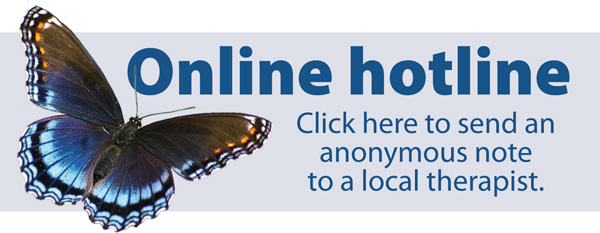 I had a car crash shortly after Christmas, and even though my son and I weren’t injured too seriously (broken arm and mild concussion), I can’t seem to put it out of my mind. I find myself avoiding driving, which is hard for a mom of three busy kids. I feel like I’m scared and on edge, and I doubt myself constantly. The guilt I feel is overwhelming at times, especially when I consider what might have happened if I and the other car had been going faster. My husband keeps saying that “these things happen” and I should just forget it. But I can’t seem to turn off these feelings. My sister thinks this might be post-traumatic stress disorder. If it is, how can I deal with it and move on?
I had a car crash shortly after Christmas, and even though my son and I weren’t injured too seriously (broken arm and mild concussion), I can’t seem to put it out of my mind. I find myself avoiding driving, which is hard for a mom of three busy kids. I feel like I’m scared and on edge, and I doubt myself constantly. The guilt I feel is overwhelming at times, especially when I consider what might have happened if I and the other car had been going faster. My husband keeps saying that “these things happen” and I should just forget it. But I can’t seem to turn off these feelings. My sister thinks this might be post-traumatic stress disorder. If it is, how can I deal with it and move on?
Response written by Kim Bond, LMFT, and Whitney Gates, LCSW of Ozark Guidance

Thanks for writing us about your experience and we are so glad that you and your son are okay. Firstly, let me tell you that having these symptoms following an automobile accident is completely NORMAL. Sometimes people around us make statements alluding to their belief that your trauma was not “a big deal” or that “You should be over this by now.” These statements can be very harmful and can make the victim feel invalidated or that there is something wrong with them. I want to tell you…your trauma was a big deal and it is okay that you are not “over it.” Your experience is your experience, and we want to completely validate your feelings of fear and uncertainty.
According to the American Family Physician website,“Traffic accidents have become the leading cause of post-traumatic stress disorder (PTSD) since the Vietnam war.10 It is estimated that 9 percent of survivors of serious accidents develop significant post-traumatic stress symptoms1 and that many other survivors have PTSD-like reactions.”
Based on what you shared, some of what you’re describing is consistent with features of Acute Stress Disorder. However, until a qualified professional actually meets with you and takes a full history, no one can make a diagnosis. Symptoms of Acute Stress Disorder can include:
- Distressing involuntary memories that one cannot put out of their mind
- Nightmares or troubling dreams (not necessarily about the event)

- Flashbacks or one feeling that the event is happening again though it is not
- Trouble experiencing happiness or feelings of safety like one did before the trauma
- Feeling like you’re in a daze
- Trouble remembering parts of the traumatic event
- Trying to avoid things that remind one of the event
- Sleep trouble
- Feeling on edge or constantly unsafe
- Poor concentration
- Easily startled
If left untreated, these things can develop into PTSD after a certain period of time. The good news? These issues are treatable through therapy and at times, a combination of therapy and medication management. There are a variety of therapeutic techniques that can be used to assist you in changing your thoughts regarding the event, and developing coping skills to deal with anxiety.
I recommend seeking out a licensed mental health professional to assist you in learning these techniques. What happened to you and your child is significant. Invest in your mental health. It’s also important to identify if your son is struggling with this issue as well. Kids can also be affected by these events. Ozark Guidance can provide services for both you and your child. You can reach Ozark Guidance at 479-750-2020. We would love to meet with you and offer any support we can. Thanks for writing.
Therapists at Ozark Guidance would be happy to answer your questions and read what’s on your mind. Click here to read more questions and answers in the On Your Mind category. Click the butterfly icon below to fill out an anonymous submission form with your question or concern. The form contains NO identifying information and is designed to give local women an online place to share concerns with a person qualified to offer feedback.
 Disclaimer: This RESPONSE does not provide medical advice It is intended for informational purposes only. It is not a substitute for professional medical advice, diagnosis or treatment. Never ignore professional medical advice in seeking treatment because of something you have read on nwaMotherlode or Ozark Guidance websites.
Disclaimer: This RESPONSE does not provide medical advice It is intended for informational purposes only. It is not a substitute for professional medical advice, diagnosis or treatment. Never ignore professional medical advice in seeking treatment because of something you have read on nwaMotherlode or Ozark Guidance websites.
